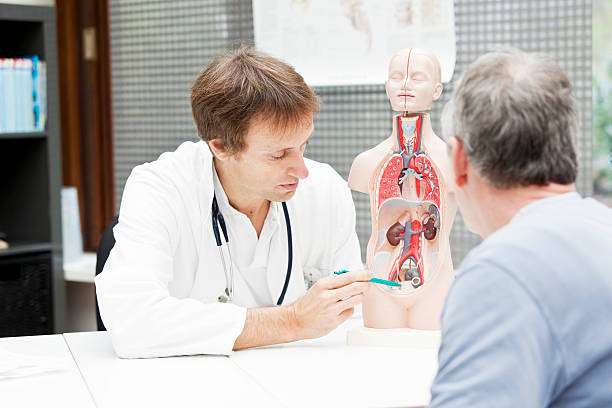The prostate is a gland that is a part of the male reproductive system that wraps around the male urethra near the bladder. The gland is about the size of a walnut and grows larger as you age.
Prostate Health can be cured with some precautions and also it can be cured with medications, which you can buy from ProstaStream.com.
Enlargement of the prostate gland can cause symptoms, for example:
- Frequent urge to urinate.
- Need to get up many times during the night to urinate.
- Blood in urine or semen.
- Pain or burning urination.
- Painful ejaculation.
- Frequent pain or stiffness in lower back, hips, pelvic or rectal area, or upper thighs.
- Dribbling of urine.
What Are The Risk Factors for Prostate Cancer?
Age: As men age, their risk of getting prostate cancer goes up. It is rarely found in men younger than age 40. Damage to the genetic material (DNA) of prostate cells is more likely for men over the age of 55. Damaged or abnormal prostate cells can begin to grow out of control and form tumors.
Age is a well-known risk factor for prostate cancer. But, smoking and being overweight are more closely linked with dying from prostate cancer.
Ethnicity: African American men have, by far, the highest incidence of the disease. One in six African American men will get prostate cancer. African American men are more likely to get prostate cancer at an earlier age. They are also more like to have aggressive tumors that grow quickly, spread and cause death.
The reason why prostate cancer is more prevalent in African American men is unclear yet it may be due to socioeconomic, environmental, diet or other factors. Other ethnicities, such as Hispanic and Asian men, are less likely to get prostate cancer.
Family History: Men with a family history of prostate cancer also face a higher risk of also developing the disease. A man is 2 to 3 times more likely to get prostate cancer if his father, brother or son had it. This risk increases with the number of relatives diagnosed with prostate cancer. The age when a close relative was diagnosed is also an important factor.
Smoking: Studies show prostate cancer risk may double for heavy smokers. Smoking is also linked to a higher risk of dying from prostate cancer. However, within 10 years of quitting, your risk for prostate cancer goes down to that of a non-smoker the same age.
World Area: Prostate cancer numbers and deaths vary around the world but are higher in North America and Northern Europe. Higher rates may be due to better or more screening procedures, heredity, poor diets, lack of exercise habits, and environmental exposures.
Diet: Diet and lifestyle may affect the risk of prostate cancer. It isn’t clear exactly how. Your risk may be higher if you eat more calories, animal fats, refined sugar and not enough fruits and vegetables. A lack of exercise is also linked to poor outcomes.
Obesity (or being very overweight) is known to increase a man’s risk of dying from prostate cancer. One way to decrease your risk is to lose weight, and keep it off.
